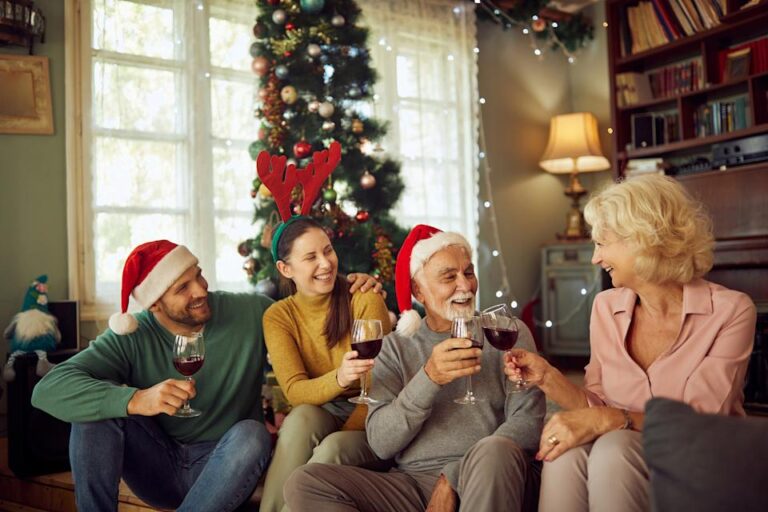Those rejected by their loved ones would disagree
For some LGBTQ+ shunned by relatives, friends and community are rewriting what ‘family’ means
What is Christmas really about? In an increasingly diverse and secular Britain, the festive period has become a celebration of family for most of us. But that focus on traditional family – the people who are supposed to offer unconditional love, no matter who you are or what you do – is precisely what makes this time of year a source of anxiety and dread for others.
Parents rejecting their LGBTQ+ offspring might sound like a plotline from gritty films of the 1980s and 1990s, not something that happens in 2022, when even Hallmark is releasing its first same-sex Christmas romcom, and we’re more than 50 years on from the decriminalization of homosexuality. But research from the anti-abuse LGBQT+ charity Galop found that family rejection is still all too common: almost three in 10 LGBTQ+ people had experienced abuse from a family member, rising to more than four in 10 trans and non-binary people. In 60% of cases, they felt their identity was the main or contributing factor.
Christmas acts as a painful reminder for too many queer people that their families have failed to affirm them, or have rejected them altogether. Consider James, in Congleton, who won’t spend Christmas with his biological family, he tells me, “because they don’t support homosexuality – it’s not for religious reasons, they just don’t like the ‘concept’ (in their words)”. He would like to celebrate anyway, but surviving on paltry disability benefits amid a cost of living crisis, he can’t afford to decorate his cold flat, and he expects to eat a 49p pasty on Christmas Day. Solitude awaits at the toxic intersection between homophobia and social inequality.
For others, family has taken on a new meaning. Ben is a 27-year-old bisexual trans man who hasn’t spent Christmas with his biological family for the last eight years. Ben feels his mother was radicalised by Britain’s increasingly assertive anti-trans movement, and when he was forced to return home from university for health reasons, “both her and my dad spent more or less every waking hour trying to convince me to ‘desist’. Essentially they were doing DIY conversion therapy every time they so much as spoke to me.” On his first Christmas away from them, he was taken in by a former family friend whose own adult child was in the process of transitioning, and who understood the trauma of rejection. “In the first two nights I was there,” he tells me, “they showed more care for my wellbeing and interest in getting to know me as a whole person than my parents had shown me since childhood.” He’s now surrounded by a “chosen family” who offer a “joyous Christmas” – some orphans, some with problematic relationships with their own parents – and who make sure no one is alone in the festive period.
Also, read the guardian
The expectation that the entire nation will be spending a day celebrating family love is what leaves those without it so miserable. But as Allmark puts it: “It can be a brave step to stop fighting for your family’s love. If they don’t give you the love you deserve, it’s hard to walk away.” And he’s right: but that’s what makes other alternative loving networks so important. Giving up on your birth family is painful, but having one you’ve chosen yourself brings its own kind of joy.
Also, read the guardian
… we have a small favour to ask. Millions are turning to the Guardian for open, independent, quality news every day, and readers in 180 countries around the world now support us financially.
We believe everyone deserves access to information that’s grounded in science and truth, and analysis rooted in authority and integrity. That’s why we made a different choice: to keep our reporting open for all readers, regardless of where they live or what they can afford to pay. This means more people can be better informed, united, and inspired to take meaningful action.
Also, read the guardian
In these perilous times, a truth-seeking global news organisation like the Guardian is essential. We have no shareholders or billionaire owner, meaning our journalism is free from commercial and political influence – this makes us different. When it’s never been more important, our independence allows us to fearlessly investigate, challenge and expose those in power.
More read the guardian

Odyssey has been the lead content writer and content marketer. He has vast experience in the field of writing. His SEO strategies help businesses to gain maximum traffic and success.

